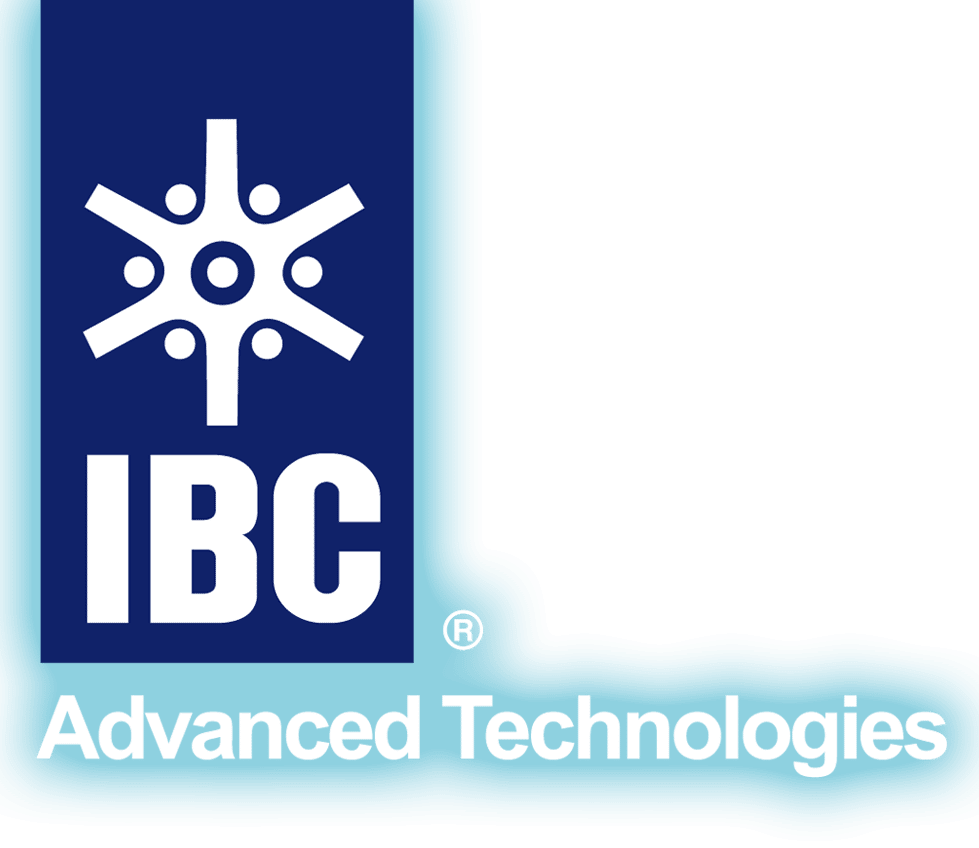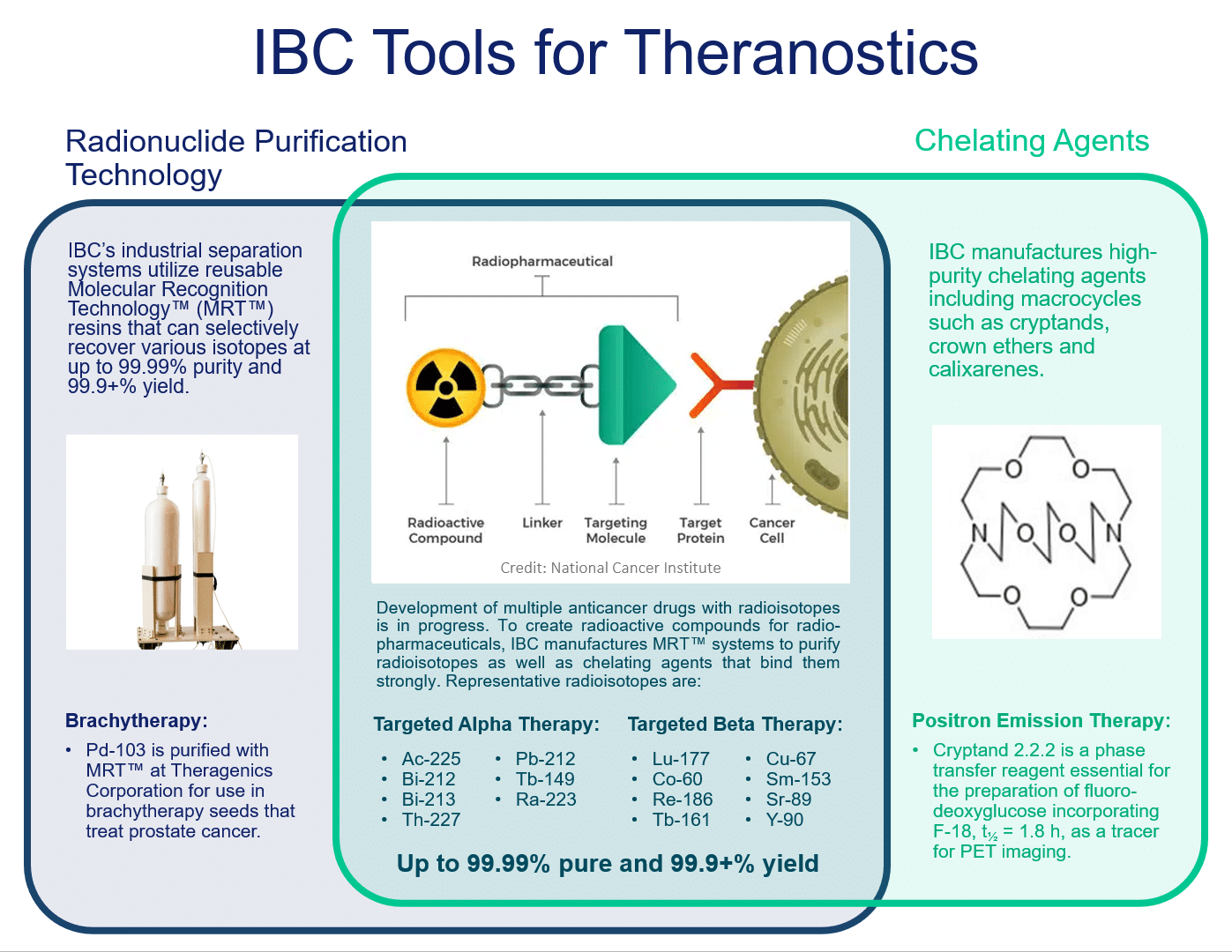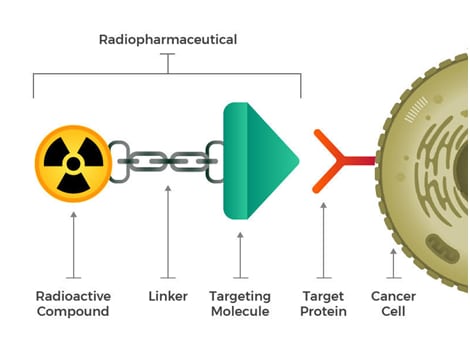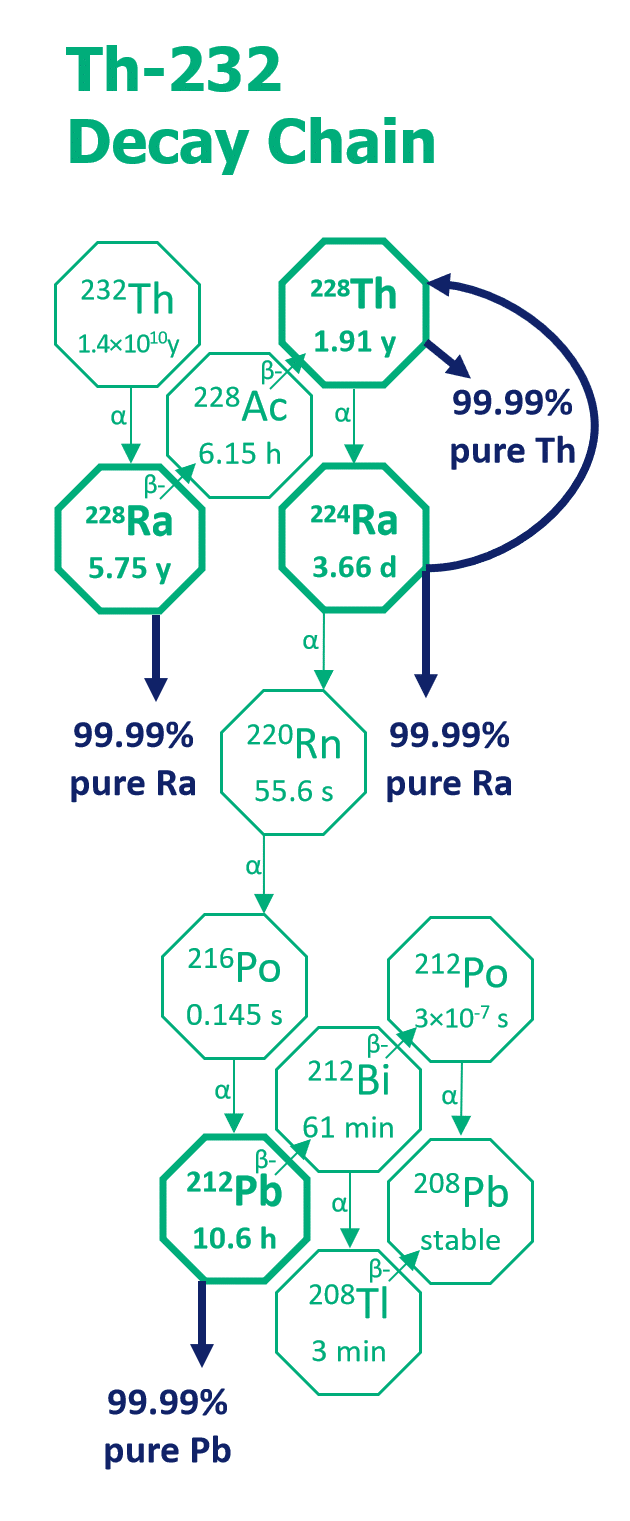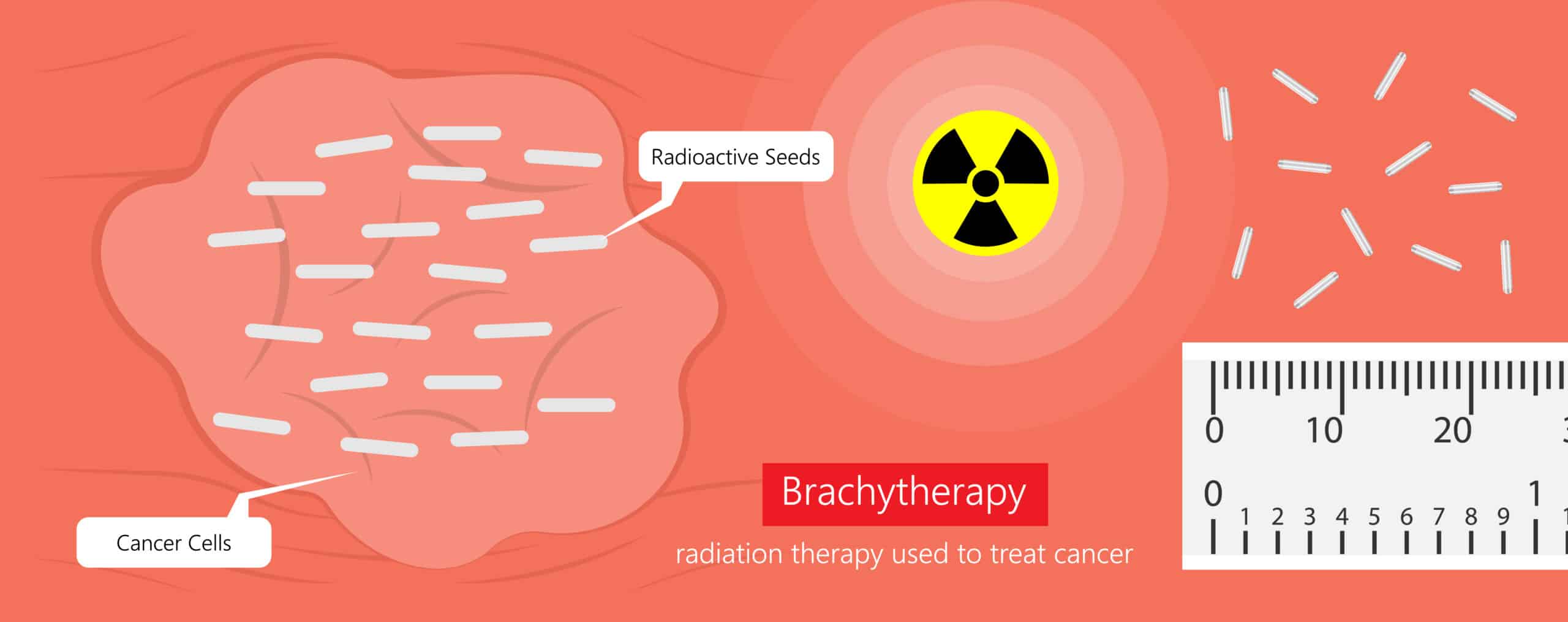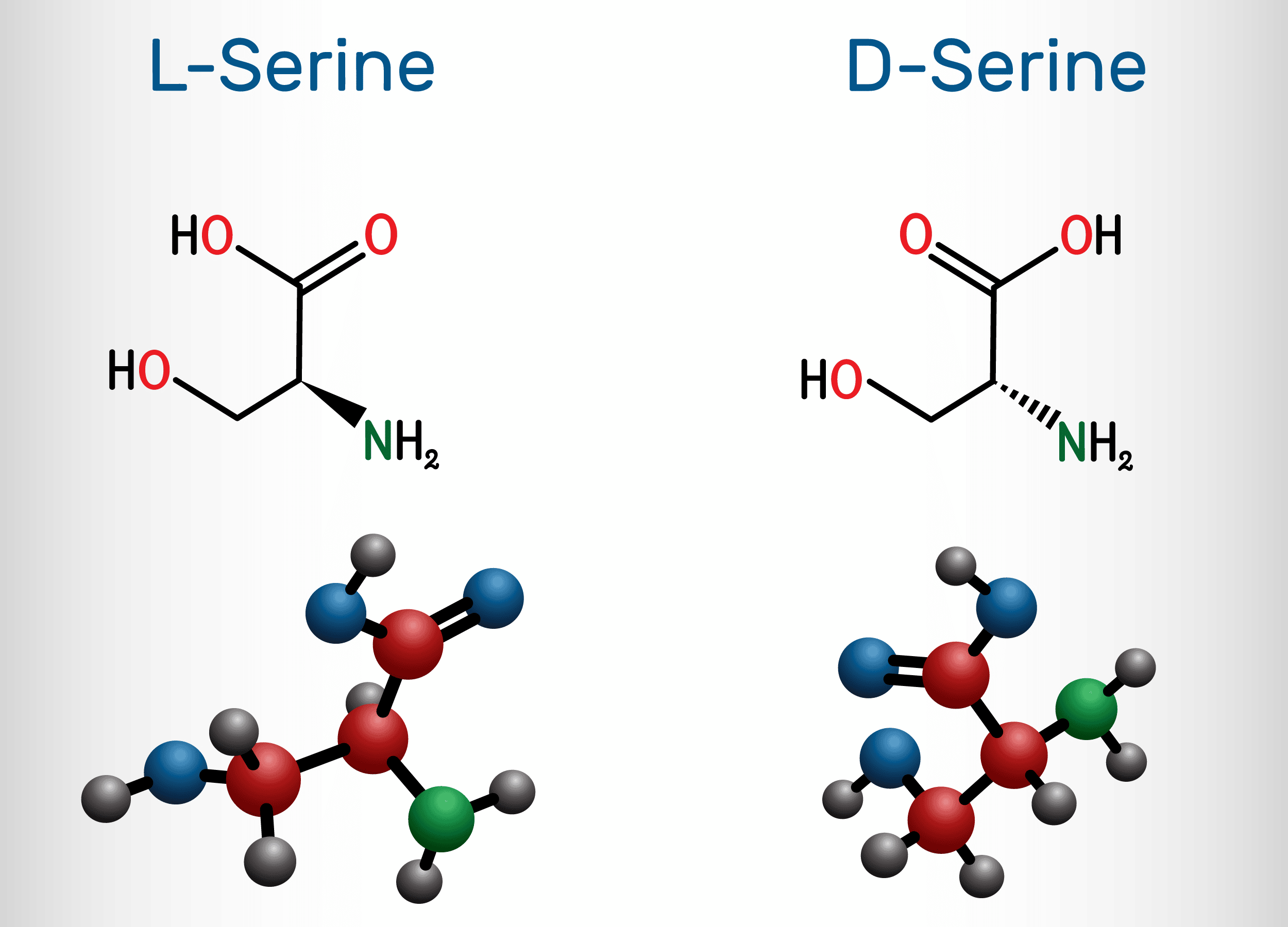Targeted Alpha Therapy (TAT)
Targeted alpha therapy (TAT) is a cancer therapy that targets and delivers a lethal dose of alpha radiation to a tumor, with minimal impact on healthy tissue.
An alpha emitting radioisotope is incorporated into a radioconjugate, a type of radiopharmaceutical composed of the radioisotope, a chelating agent that strongly binds the radioisotope forming a radioactive compound, a linker and a targeting molecule. These drugs are revolutionizing the treatment of cancer by working at the cellular level to target specific cancer cells with massive radiation doses that have minimal effect on adjacent healthy cells. Therapeutic radionuclides of interest for TAT include Ac-225, At-211, Bi-212, Bi-213, Pb-212, Ra-223, Tb-149 and Th-227. High purity is critical for these radionuclides because they are used to treat humans and impurities can be dangerous. For example, some impurity radionuclides might emit beta radiation that could cause severe damage to surrounding tissue. IBC applies its expertise in highly selective radionuclide separations and finely tuned organic chemistry synthesis to supply key components of radioconjugates including highly purified radioactive isotopes and strongly binding chelating agents, such as macrocycles.
The supply of therapeutic radionuclides for TAT is extremely constrained making it essential to preserve these scarce resources by efficiently recovering them at very high levels from the complex matrices in which they are found using highly selective MRT™ processes.
Actinium Radiopharmaceuticals
See why Ac-225, perhaps the most promising radionuclide for Targeted Alpha Therapy (TAT), has been called the "rarest drug on Earth," in this explanatory video featuring actinium radiopharmaceuticals:
IBC’s proprietary technology for the highly selective separation and recovery of Ac-225 at 99.99% purity is being deployed to greatly increase the supply of Ac-225. MRT™ selectively separates Ac-225 at very high recovery rates and very high purity from complex matrices, thereby providing a reliable supply of this critical radionuclide to support the widespread development and use of targeted alpha therapy.
Lead-212 Purification
Pb-212 is another alpha emitting radionuclide used in targeted alpha therapy. With a half-life of nearly 11 hours, Pb-212 can be purified, prepared and used as an out-patient cancer treatment.
As shown in the diagram, Pb-212 can be produced from the decay of Th-232 or Th-228. The challenge is rapidly purifying Pb-212 from the other daughter isotopes in the decay chain, including Ra-224. To purify Pb-212, IBC has developed an MRT™ resin that is highly selective for lead and can achieve 99.99% purity and 99.9+% recovery.
Other Radionuclide Purification Technologies:
MRT™ Resins for Radium, Thorium and More
MRT™ resins that purify radium, thorium and other individual elements are also available and can be used to recover and recycle these valuable radioisotopes. Both Ra-223 and Th-227 can be used in targeted alpha therapy and these radionuclides must be purified before being incorporated into radiopharmaceuticals. Moreover, since additional isotopes of thorium and radium are essential precursors to Ac-225 and other clinically important radionuclides, purifying thorium and radium from so called “waste streams” is extremely worthwhile.
IBC’s MRT™ resins can rapidly recover the desired element at up to 99.99% purity and 99.9+% yield. Due to their high stability, MRT™ resins can be used repeatedly, thus minimizing waste that is often associated with other separation methods.
For the fast, clean purification of radionuclides MRT™ resins offer several advantages:
- Exceptional selectivity, recovery and purity of the individual radioisotope (99.9+%)
- High capacity and rapid bind-and-release kinetics which produce a pure, concentrated product
- Remarkable chemical and radiolytic stability (up to 1.0E+9 Rad) allowing for resin reusability and waste minimization
- Potential single step recovery which simplifies processing flow sheets
IBC has excellent technology for:
- Radium (Ra) purification and recycling
- Thorium (Th) purification and recycling
- Lead (Pb) purification
- Rapidly recovering many other individual radioisotopes with high purity, high yield and minimal waste
Brachytherapy
MRT™ is used to separate and recover Pd-103 from a complex matrix in which it is present and purifies it prior to preparing the seeds involved in the treatment. High purity Pd-103, essential in this application, is easily obtained. MRT™ has distinct advantages over competing processes including high selectivity and recovery for Pd-103, elimination of steps and reagents, and minimal waste generation.
Enantiomeric Separations
High purity of separated enantiomers is essential since the individual enantiomers have quite different properties, some of which can have negative human health consequences. Highly selective (>99%), non-chromatographic separation of chiral molecules is achieved using IBC’s ChiraLig™ MRT™ products.
